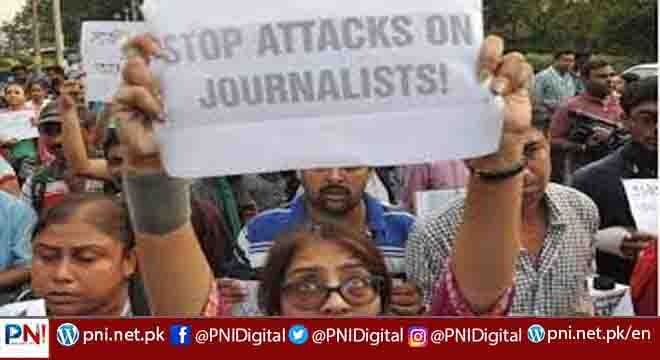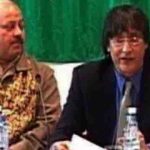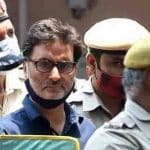NEW YORK, Mar 11 (APP):The owner of a sealed newspaper in Indian Illegally Occupied Jammu & Kashmir (IIOJK) says Prime Minister Narendra Modi’s “repressive media policies are destroying Kashmiri journalism, intimidating media outlets into serving as government mouthpieces and creating an information vacuum in our region of about 13 million people,” as India descends into authoritarianism.
In an opinion piece published in The New York Times on Saturday, Anuradha Bhasin, executive editor of The Kashmir Times, whose offices in Srinagar were sealed by the occupation authorities three years ago, wrote that Modi was taking steps that could replicate this disturbing model on a national scale.
“His Hindu-chauvinist movement, which has normalized intolerance and violence against Indian Muslims, has already put severe pressure on India’s once-rambunctious press, with journalists surveilled and jailed, and the government using strong-arm tactics against media outlets to ensure favourable coverage,” Ms. Bhasin wrote in her piece titled: Modi’s Final Assault on India’s Press Freedom Has Begun.
But in January, she pointed out that draft amendments to digital media guidelines were introduced that would essentially allow the government to block any content it doesn’t like.
“In other words, the rest of India may end up looking a lot like Kashmir,” Ms. Bhasin remarked.
In 2019, Modi’s government abruptly revoked Kashmir’s autonomous status without public input from the territory’s people, sent in thousands of troops and shut down internet access, it was pointed out. The shutdown lasted nearly six months, forcing hundreds of journalists to line up for hours to file their stories via a single designated site that had internet access. Each had 15 minutes to do so. Internet speeds have been excruciatingly slow since.
The next year new rules were introduced that empowered officials to label media content in Kashmir as “fake news, plagiarism and unethical or anti-national” and to punish journalists and publications. “The rules stated — ironically — that the goal was to ‘promote the highest standard of journalism’.”
“Journalists are routinely summoned by the police, interrogated and threatened with charges such as income tax violations or terrorism or separatism,” Ms. Bhasin said, noting that several prominent journalists have been detained or sentenced to jail terms. At least 19 journalists were killed in Kashmir between 1990 and 2018.
“We work under a cloud of fear,” she said.
“An information vacuum hangs over Kashmir, with the public under-informed — or misinformed — about what’s going on in the region. Important news is suppressed, downplayed or twisted to suit government ends.”
When Syed Ali Shah Geelani, a towering Kashmiri figure, died in 2021, the news was either blacked out in Kashmir or mentioned only briefly, according to the article. Last month, the government began a drive to bulldoze thousands of homes that authorities said were illegally built on state land. A leading Kashmir outlet portrayed it as a bold stroke against unnamed “influential land-grabbers.” There was no word about the poor Kashmiris suddenly left homeless or residents who claim to have valid documents proving ownership.
“An ignorant public and a government free of scrutiny and accountability are threats to democracy,”Ms. Bhasin wrote. “But Mr. Modi appears intent on replicating this across India. The proposed amendments to national guidelines for digital media that were unveiled in January are strikingly similar to those imposed on Kashmir, empowering government fact-checkers to label online content as ‘fake or false.’ Days after those changes were announced, the government ordered online platforms to block links to “India: The Modi Question,” a BBC documentary critical of the prime minister. Indian tax agents later raided the British broadcaster’s offices in India. Such raids have been used repeatedly to pressure critical voices in the media.
“Since he took power in 2014, Mr. Modi has systematically debased India’s democratic ideals, bending courts and other government machinery to his will,” she wrote.
“The media stands as one of the last remaining institutions capable of preventing India’s descent into authoritarianism. But if Mr. Modi succeeds in introducing the Kashmir model of information control to the rest of the country, it won’t just press freedom that is at risk, but Indian democracy itself.”
Follow the PNI Facebook page for the latest news and updates.








